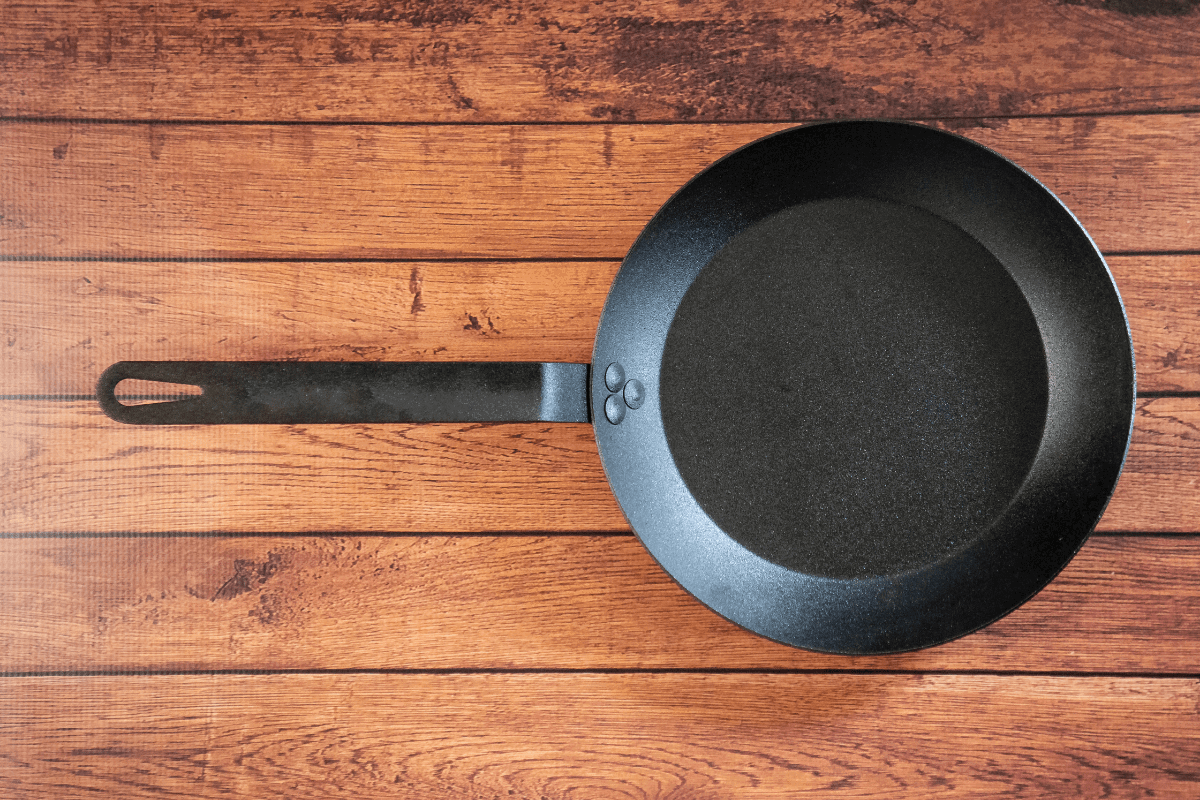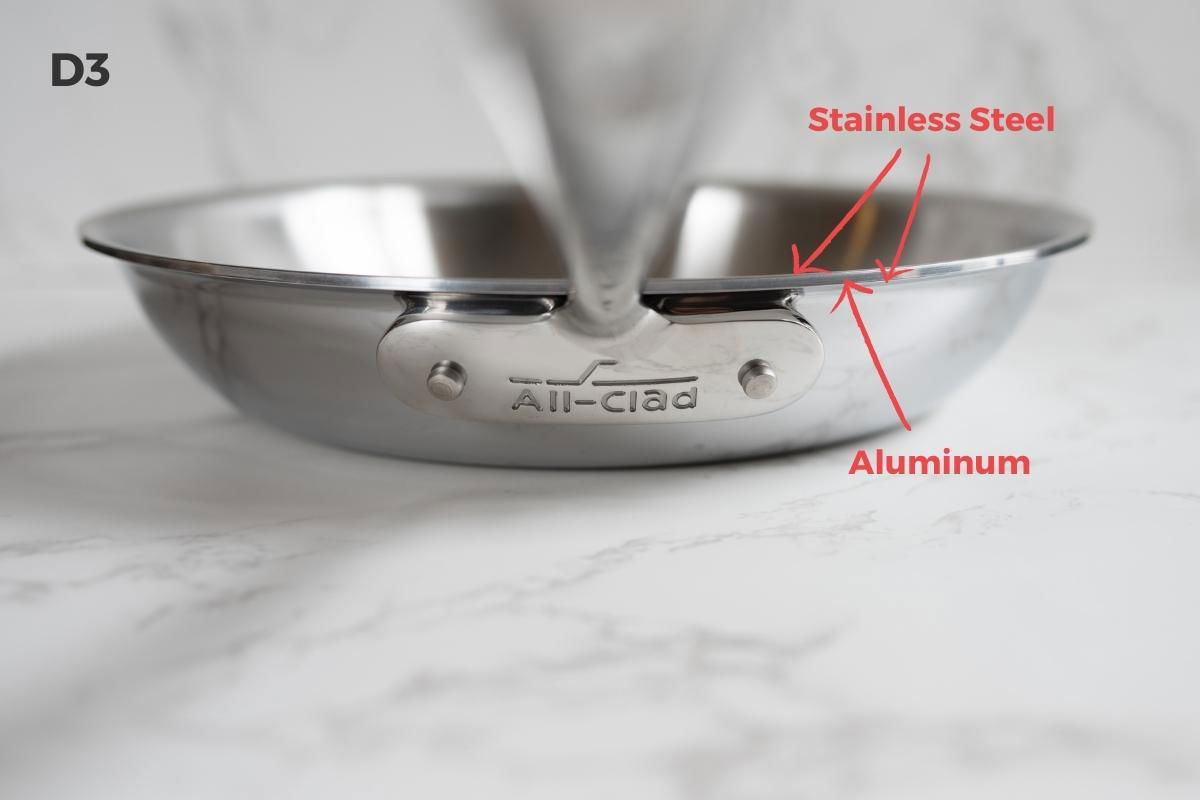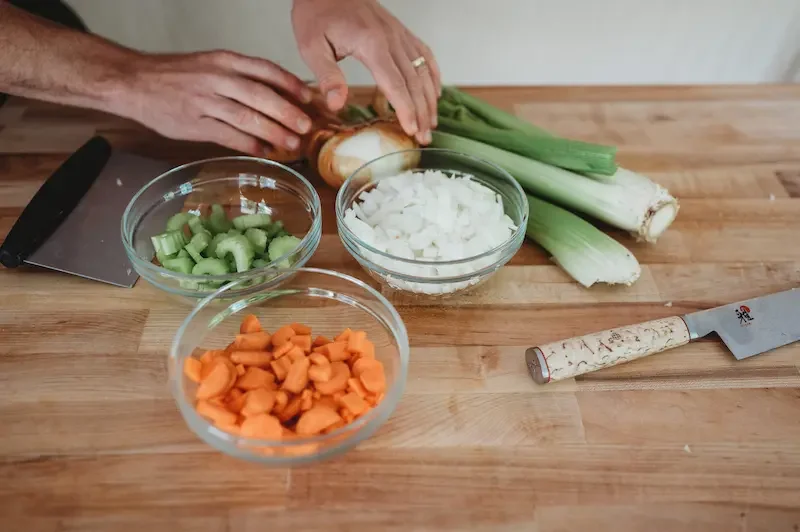There are a few different factors that determine how long it takes to cook rice in a rice cooker. But in general, white rice will take somewhere between 20 and 30 minutes, and brown rice will usually take between 45 minutes to an hour.
However, not all rice and not all rice cookers are created equal. Some have soaking time built into their cook settings, which can add time. And others have quick cook modes that can speed things up if you’re in a hurry.
There’s been a rice cooker in every house and apartment I’ve lived in since I was born, and I’ve used countless models in restaurant kitchens as well. And by understanding a little bit about how rice cookers work, we can answer the question: how long does a rice cooker take?
In This Article
How A Rice Cooker Works

While there are a variety of different rice cookers with varying amounts of technology and price tags to match, they all work in about the same way.
Just like when using a regular pot, a rice cooker has a heating element that causes water to boil, which in turn cooks the rice. When the rice is done, a rice cooker will either shut off or switch to a lower temperature to keep the rice warm.
Simple enough, but let’s break it down a little further.
Heating Element
Think of the heating element just like the burner on your stove. There are generally two types of heating elements used in rice cookers. But their job is the same. Heat water to cook rice.
The first and most common element is a radiant heating plate or coil. These rice cookers work by physically applying heat to the inner pot of the rice cooker. Just like with an electric or gas stovetop where you turn on a burner and it gets hot.
Radiant heating is simple and relatively inexpensive.
The other option is induction heating. Instead of physically applying heat, induction rice cookers use an electromagnetic field that creates alternating electric currents within the inner pot of the rice cooker. Those currents cause the pot itself to get hot without actually applying any heat.
The benefits of induction rice cookers are that they distribute heat more evenly, and use very precise temperatures to cook. Leading to more evenly and consistently cooked rice. The downside, they’re much more expensive.
How Does It Know When The Rice Is Done?
No matter what kind or how much rice you’re making, a rice cooker seems to miraculously know exactly when the rice is done cooking.
Now, I’m about to let the cat out of the bag. So if you want to keep the mystery alive, go ahead and skip to the next section.
The answer is actually very simple, and perhaps a little disappointing. Rice cookers don’t really know anything about the rice itself. Instead, they know when there’s no more water in the pot.
Most machines are equipped with a temperature sensor that is set to shut the unit off when it exceeds 212 F (the boiling point of water at sea level).
So, as long as there’s water in the rice cooker, it shouldn’t get hotter than 212 F. But, as soon as all of the water has been absorbed or evaporated, the temperature will begin to climb. And that temperature spike will trigger the temperature sensor and turn the machine off or switch to a warm setting.
Soaking And Resting Rice

The actual cooking time of rice is fairly consistent across most rice cookers. For white rice that’s between 20 and 30 minutes, and around 45 and 60 minutes for brown rice. And that goes for cooking anywhere from 1 to 5 cups of dry rice.
When you start getting into very large quantities you may need to increase the time by 5-10 minutes. But it shouldn’t take drastically longer.
Now, outside of the active cooking time are two additional stages. Soaking and resting. Technically you don’t have to do either step, but if you want the best rice I would encourage it. And, some rice cookers have these steps built into their cooking process.
Soak
Once you measure your rice and water, letting it soak for around 30 minutes before cooking will help the rice cook more evenly. Some rice cookers even include some soaking time in their preset cooking modes. If that’s the case, once you press start, you might be looking at close to an hour for white rice and an hour and a half for brown.
Rest
Once your rice is done cooking, it’s also a good idea to let it rest for at least 5 minutes and up to 30. This time allows your rice to continue absorbing excess steam and for the moisture within the pot of rice to be more evenly distributed.
Once it’s rested, go ahead and fluff your rice with a rice paddle and enjoy…finally.
Final Thoughts

The active cooking time for most rice cookers is about the same. You should plan on around 30 minutes for white rice and closer to an hour for brown. For the best results, take the time to soak your rice for 30 minutes before cooking, and let it rest for at least a few minutes after.
I know, it sounds like a lot of time when you put it all together. Luckily, it’s 90% hands-off and the rice cooker is really doing most of the work for you.
If you don’t currently have a rice cooker or are looking to up your rice game, be sure to check out our buyers guide to the best Japanese rice cookers.
Frequently Asked Questions
Do Rice Cookers Take More Time At High Altitude?
Rice cookers can take a few minutes longer to finish a cooking cycle at high altitude. The boiling point of water is lower at high altitudes (around 204 F at a mile high compared to 212 F at sea level). So, it can take a little longer before it reaches the necessary temperature to finish the cooking cycle.
Does A Rice Cooker Make Better Rice Than A Pot?
A rice cooker does not necessarily produce better rice than a pot. But, they do generally produce more consistent results because there is less room for error than when using a pot on a stovetop.
Does Brown Rice Take Longer To Cook Than White Rice?
Yes, brown rice takes longer to cook than white rice. Brown rice still has the outer bran and germ intact, which takes a longer time to break down and become soft and edible.







